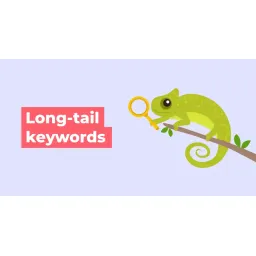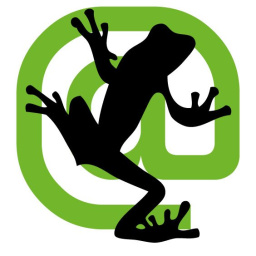Mastering Long-Tail Keywords
by Abbs
Posted on 2023-06-22 11:13:01

What Are Long-Tail Keywords and Why Should You Utilize Them?
In the ever-evolving world of Seo (SEO), understanding and making use of long-tail keywords can set your website or blog apart from the competition. As their name suggests, long-tail keywords are more prolonged and specific keyword phrases that visitors are most likely to utilize when they're closer to a point of purchase or when they're using voice search.
However exactly what are long-tail keywords and why should you incorporate them into your SEO strategy? Let's delve into it.
TIP:Say goodbye to thin content! Beef up your pages with valuable information and relevant keywords.
What are long-tail keywords?
To start, long-tail keywords are specific phrases typically composed of 3 to five words or more. They represent focused search queries that internet users participate in search engines like Google. For instance, instead of a user searching for "shoes," a long-tail keyword example would be "black leather boots for women."
Why are these detailed phrases crucial to your SEO strategy? The targeting and specificity of long-tail keywords make them highly effective in reaching your preferred audience. These specific phrases allow you to zone in on user intent and target niche demographics more directly.
Why should you use long-tail keywords?
The benefits of using long-tail keywords in your SEO strategy are manifold. For beginners, because they're more specific, they tend to have less competition. As a result, ranking for these keywords can be significantly easier. Your content stands a higher chance of achieving top areas in search engine rankings, which equates to more visibility, higher traffic, and improved conversions.

Furthermore, these keywords are typically a sign of a user who has actually moved beyond the research phase and is closer to making a purchase decision. This indicates that long-tail keywords can be an excellent tool for businesses wanting to drive more targeted leads and boost conversion rates.
The benefits of utilizing long-tail keywords
There's a strong connection in between the use of long-tail keywords and increased search volume, website traffic, and conversion rates. Long-tail keywords typically lead to higher conversion rates, as the traffic they attract is more targeted and specific. In essence, the people who find your website or blog by using a long-tail keyword are more likely to purchase your services or product.
Likewise, by consistently integrating long-tail keywords into your content, you provide valuable information to your audience, thus improving user experience, building trust, and increasing the likelihood of return visits. It's a win-win for both the searcher and the website owner.
Examples of long-tail keywords
Here are a few examples of long-tail keywords:
TIP:Unlock the secret to higher rankings: Craft compelling meta titles and descriptions that entice clicks!
- "How to improve my SEO rankings rapidly"
- "Best SEO tools for small company owners"
- "Cost effective keyword research tools for beginners"
- "Why are long-tail keywords important in SEO?"
These examples provide a glance into the searcher's mind and demonstrate how specific and directed search queries can be.
Now that we have a robust understanding of what long-tail keywords are and their benefits, we will explore how to find relevant long-tail keywords that resonate with your target audience in the next section.
How to Find Long-Tail Keywords That Relate To Your Audience
Understanding the power of long-tail keywords is one thing, but the ability to find and leverage them effectively in your SEO strategy is what will set your content apart and drive meaningful traffic to your site. This section will provide you with insights on keyword research tools, how to use them, and strategies to identify long-tail keywords that resonate with your target audience.
Keyword research tools
The initial step in your journey to finding effective long-tail keywords is selecting a robust keyword research tool. These tools provide you with valuable data about search volumes, competition levels, and even searcher intent behind numerous keywords.
Here are some popular keyword research tools that you may think about:
- Google Keyword Planner: This free tool provided by Google provides you insight into the historic and forecasted performance of various keywords.
- SEMRush: A comprehensive SEO tool that offers an extensive keyword research feature, allowing you to see what keywords your competitors are ranking for.
- Ahrefs: Known for its detailed keyword reports, Ahrefs also offers information about the difficulty and search volume of specific keywords.
Do not forget to have a look at our comprehensive guide on mastering keyword research for more insights.
How to use keyword research tools
Using a keyword research tool effectively is an ability that includes practice and understanding. Here are some steps to guide you:
- Start with a broad keyword: Input a broad keyword related to your niche into the research tool.
- Analyze the results: The tool will display a list of related keywords, their search volumes, competition levels, and possibly their cost-per-click (CPC) if it's a paid tool.
- Search for long-tail variations: From this list, search for longer, more specific variations of your broad keyword.
- Examine search intent: Try to understand what a user's intent might be when they search utilizing this keyword. Would they be seeking to purchase, seeking information, or comparing products?
- Check the competition: The lower the competition, the higher your chances of ranking for that keyword.
How to find long-tail keywords that pertain to your audience
Understanding your target audience and their requirements is the cornerstone of finding relevant long-tail keywords. Here are some strategies to find keywords that resonate with your audience:
- User-generated content: Take a look at discuss your post, social media, or customer evaluations. What terms are your audience using? What questions are they asking? These might potentially be your long-tail keywords.
- Usage "Google Suggest": Start typing a broad keyword into Google, and it will suggest popular search queries. These suggestions typically include excellent long-tail keywords.
- Check out forums and Q&A sites: Websites like Quora or industry-specific forums have lots of people asking detailed, specific questions —-- a bonanza of potential long-tail keywords.
- Utilize your analytics: Tools like Google Analytics can show you what search terms people are using to find your website. You might find some unanticipated long-tail keywords here.
Armed with this knowledge, finding and using relevant long-tail keywords must be well within your grasp. But simply finding them is inadequate. The next step is to optimize your website for these long-tail keywords, which we'll cover in our next section.
How to Optimize Your Website for Long-Tail Keywords
After identifying long-tail keywords that resonate with your target audience, the next crucial step is optimizing your website to rank much better in search engine results. This process involves tweaking different components of your website - from title tags and meta descriptions to the content and images. Let's dig deeper into how to do this effectively.
Optimize Your Website's Title Tag
The title tag is a major ranking consider Google's search algorithm and the very first thing people see in search results page. Incorporating your long-tail keyword into the title tag is a powerful way to boost your site's visibility. Ensure the title tag is catchy, engaging, and precisely represents the content of your page.
For example, if your long-tail keyword is "how to train a golden retriever pup", your title tag could be: "The Ultimate Guide on How to Train a Golden Retriever Puppy".
Optimize Your Website's Meta Descriptions
Meta descriptions provide a summary of your websites in search engine results. Although they do not directly affect rankings, they can significantly impact click-through rates. Including your long-tail keyword in the meta description can highlight the relevance of your content to potential visitors, triggering them to click.
TIP:Snatch the featured snippet! Optimize your content to appear as a rich snippet on search results.
Here's an example using our earlier long-tail keyword: "Looking for effective approaches on how to train a golden retriever puppy? Our comprehensive guide supplies step-by-step directions to assist you through the process."
Check out our detailed guide on how to write compelling headlines and descriptions to learn more.
Optimize Your Website's Content for Long-Tail Keywords
Long-tail keywords should be effortlessly integrated into your website's content. Place the keywords strategically in headers, subheaders, and throughout the text, guaranteeing it reads naturally. Remember, user experience is critical, so avoid keyword stuffing as it can lead to a bad reader experience and can harm your site's SEO.
When writing a blog post or article, answer the questions your audience may have about the keyword topic. Doing this pleases the user intent and makes your content valuable, increasing the chances of a higher ranking.

Ensure your website's content is constantly fresh, relevant, and engaging. Consistently updating your content with the latest information will not just satisfy your visitors but also send positive signals to online search engine about your site's significance.
Optimize Your Website's Images for Long-Tail Keywords
Images can likewise be optimized to increase your page's SEO worth. Utilizing relevant images and adding your long-tail keywords in the image file name and alt text can help search engines understand the image's context. For instance, an image related to our earlier keyword may be called "golden-retriever-puppy-training-tips. jpg". The alt text might be "Golden retriever puppy learning to rest on command."
Discover more ways to effectively format your content for SEO in our guide on format content.
Optimizing your website for long-tail keywords can considerably improve your search engine rankings, therefore increasing visibility and traffic. However, the real worth depends on understanding and profiting of utilizing long-tail keywords, which is the focus of our next section.
TIP:Socialize your content! Encourage social sharing to increase visibility and drive more traffic.
The Benefits of Using Long-Tail Keywords
In the developing world of SEO, long-tail keywords have actually ended up being a powerful tool for businesses aiming to break into the top search results. By executing a long-tail keyword strategy, you not only enhance your website's visibility however likewise enjoy a myriad of other benefits. Let's take a closer look.
Increased Traffic to Your Website
While individual long-tail keywords may have lower search volumes, collectively they comprise a significant portion of internet searches. Therefore, optimizing your content for long-tail keywords can draw a substantial amount of traffic to your website.
Bear in mind that these searchers often have a specific intent, meaning they are closer to a point of purchase or conversion than others who utilize broad search terms.
Improved Search Engine Rankings
Long-tail keywords tend to be less competitive due to their specificity. This means it's easier for your website to rank high up on search engine results pages (SERPs) when you target these terms. By consistently using long-tail keywords in your content, you can improve your site's total SEO and increase visibility.
For more insights on how to bolster your online search engine rankings, check out our SEO strategy guide.
TIP:Befriend search engine bots! Create a sitemap to help them crawl and index your pages efficiently.
More Targeted Leads and Customers
Long-tail keywords are typically utilized by customers who understand precisely what they're looking for. These specific search queries often indicate a higher level of intent and preparedness to purchase.
For example, a user looking for "economical females's running shoes size 8" is likely much closer to buying than someone who simply types "shoes". By targeting these precise search terms, you can attract more qualified cause your website, increasing the chances of conversions.
Increased Brand Awareness
Using long-tail keywords in your content also increases brand awareness. The more specific your content is, the more it deals with a user's particular search query. This specificity helps to establish your brand as an authoritative source in your niche, boosting the trust and trustworthiness of your brand amongst users.
It's crucial to understand that while including long-tail keywords into your SEO strategy requires research and effort, the benefits in terms of traffic, rankings, conversions, and brand awareness are well worth it.
In our next section, we'll explore real-life examples of long-tail keywords that are driving significant traffic to different websites. These examples will not just provide a clearer understanding of how effective long-tail keywords can be however will likewise serve as motivation for your own long-tail keyword research.
Examples of Long-Tail Keywords That Are Driving Traffic
Utilizing the power of long-tail keywords isn't simply a theoretical concept. There are many real-world examples of businesses that have increased their organic traffic by focusing on these targeted, longer search phrases. In this section, we'll highlight a few such cases and provide some insights on how you can utilize these examples to find effective long-tail keywords for your own website.
Examples of Long-Tail Keywords Driving Traffic
Think about a theoretical regional bakery that specializes in gluten-free pastries. While attempting to rank for a general keyword like "pastry shop" may be highly competitive, the bakery might focus on long-tail keywords associated with their niche such as "gluten-free bakeshop in Brooklyn" or "vegan and gluten-free pastries". These keywords are most likely to rank higher in search results due to their specific nature.
Similarly, an online tech shop might find ranking for "laptop computers" challenging due to high competition. Nevertheless, optimizing their content for long-tail keywords like "best video gaming laptops under 1000" or "latest Apple MacBook Pro review" can significantly improve their search engine rankings and attract more relevant traffic.
Our article on boosting website traffic offers more examples and practical tips on utilizing long-tail keywords effectively.
Leveraging These Examples for Your Website
By studying such examples, you can better understand how to craft your own long-tail keywords. The initial step is to identify your unique selling propositions or the areas where your business stands out. Then, think about how your target audience may search for those specific product or services.
Remember to utilize keyword research tools to determine the popularity and competition of these long-tail keywords. The Learning Keyword Research article on our site offers a comprehensive guide on utilizing keyword research tools effectively.
Conclusion
Throughout this series, we've explored the power of long-tail keywords and how they can boost your SEO strategy. We began with a detailed description of what long-tail keywords are and why they're essential for your online success. We delved into numerous methods to find and optimize your website for these keywords, underscoring the profound benefits of this approach. Lastly, we presented real-world examples to demonstrate the effectiveness of long-tail keywords in driving quality traffic.
Remember that an effective long-tail keyword strategy starts with understanding your audience's intent and how they may search for the specific products or services you offer. It requires careful research, thoughtful implementation, and constant tracking and adjustment.
The world of SEO is complex and ever-changing, however with a strong foundation in long-tail keyword use, you're well on your method to improving your website's visibility, attracting higher quality leads, and ultimately, increasing your business's bottom line.
 What Are Long-Tail Keywords and Why Should You Utilize Them?
In the ever-evolving world of Seo (SEO
What Are Long-Tail Keywords and Why Should You Utilize Them?
In the ever-evolving world of Seo (SEO
 Making Use Of Paid Advertising for SEO
While organic search traffic is essential for any website, i
Making Use Of Paid Advertising for SEO
While organic search traffic is essential for any website, i
 Using Influencer Marketing for SEO
Influencer marketing has actually become a popular strategy for
Using Influencer Marketing for SEO
Influencer marketing has actually become a popular strategy for


